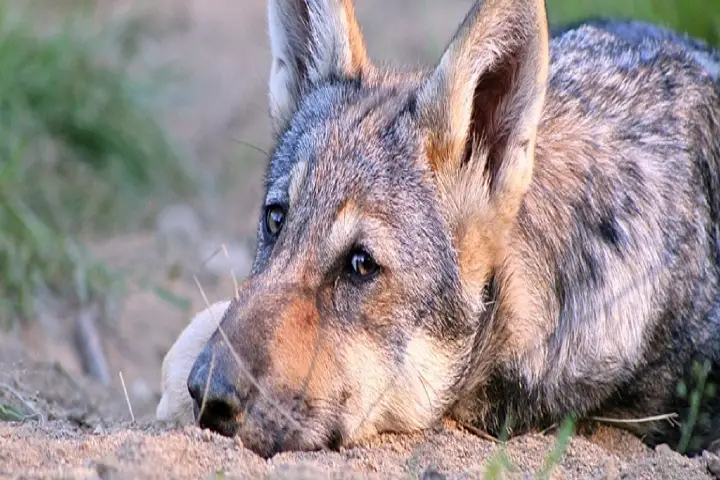

The wolf pup which was part of the experiment conducted to study how wolves bond with humans (Pic. Courtesy sciencealert.com)
Among the animals, human beings usually share a strong bond of love and devotion with dogs. Yet, a report in sciencealert.com points out that even wolves are capable of developing warm relations with people.
Even though this has been indicated in some past studies not much investigation has been carried on the bonding between human beings and wolves.
Now, a study has been conducted whose subjects were a test group of dogs and wolves with both species having been raised in similar conditions from their birth.
Dogs were domesticated between 40,000 and 15,000 years ago and these ones came from the species of wolf that are no more. Researchers feel that their investigation will bring to the fore the attributes that came into being during domestication and those which were present earlier.
The study’s lead author Christina Hansen Wheat who is from Sweden’s Stockholm University observed: “Wolves showing human-directed attachment could have had a selective advantage in early stages of dog domestication.”
For the research, the reactions and conduct of 12 Alaskan husky dogs and 10 European grey wolves or Canis lupus were studied as they were subjected to a standard scientific test known as Strange Situation Test.
Both the dogs and wolves had been brought up from the age of 10 days to 23 weeks by trained caregivers and they were subjected to a 15-minute duration experiment.
The main female caregiver would along with a female stranger take turns in visiting the dogs and wolves and engage them in games and petting.
It was observed that the wolves like the dogs displayed more love and spent more time with persons they were familiar with besides engaging in more physical contact with them. Interestingly, they followed the familiar person right up to the door of the room.
Talking about this Hansen Wheat said: “It was very clear that the wolves, as the dogs, preferred the familiar person over the stranger. But what was perhaps even more interesting was that while the dogs were not particularly affected by the test situation, the wolves were.”
Significantly it was seen that the wolves were more stressed and afraid as compared to dogs when they had to deal with strangers alone without the presence of the familiar person. This was exhibited in tail-tucking, pacing and crouching.
The tension in the animal reduced as soon as the familiar person came back, thus suggesting that this person played the role of a ‘social buffer’ for the wolf.
Even though the two species – wolves and dogs – are not the same, when it comes to bonding with people, they do share similarities.
Summing up the research which was published in Ecology and Evolution, Hansen Wheat said: “Together with earlier studies making important contributions to this question, I think it is now appropriate to entertain the idea that if variation in human-directed attachment behaviour exists in wolves, this behaviour could have been a potential target for early selective pressures exerted during dog domestication.”
US President Donald Trump on Saturday (US local time) called the continuation of the trial…
Protestors in Serbia took to the streets of Belgrade and demanded an early election, as…
The Ministry of External Affairs (MEA) on Sunday strongly rejected the Pakistani Army's claims, where…
Indian Army strengthens ties with Russian Land Forces at the 4th Indo-Russian Inter-Governmental Commission (IRIGC)…
The Indo-French Joint Military Exercise SHAKTI-VIII continues to strengthen operational interoperability and mutual cooperation between…
Prime Minister Narendra Modi attended the centenary celebrations of the revered Jain spiritual leader Acharya…